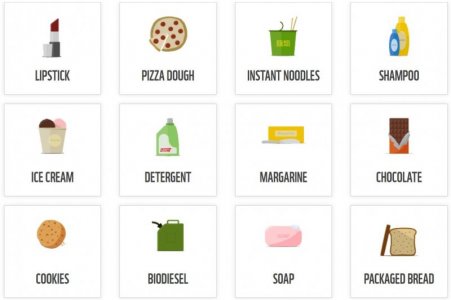hollydolly
SF VIP
- Location
- London England
Farmers are warning of a food crisis sparked by shortages and spiralling wholesale prices – amid fears rationing could spread beyond cooking oil.
National Farmers’ Union leader Minette Batters warned: ‘It is the most serious situation for food production since the Second World War.’
Major supermarkets are already limiting how much sunflower oil, which is largely sourced from Ukraine, customers can buy.
And other shortages and punishing price rises are being felt in the food chain, with an inevitable knock-on effect on choice and household budgets.
Farmers’ leaders warned the Environment Secretary George Eustice about the crisis at emergency talks last week.
Tim Lang, professor emeritus of food policy at City, University of London, said: ‘We are talking about rationing sunflower oil today, but it could be other products soon.
‘The Ukraine crisis is piling on the agony and reminding us – and the Government – that we cannot assume supermarket shelves will always be full.’
Tesco, Morrisons, Waitrose and Iceland are limiting how much sunflower oil can be bought and there are concerns this will spread to other products and, more likely, see reduced choice on shelves.
Ukraine and Russia normally export tens of millions of tons of wheat and other grain, which is used in food production and animal feed.
Shortages and higher prices will affect the shelf prices of everything from bread, pasta and beer to chicken and sausages.
Professor Lang said: ‘We are seeing a destabilisation coming into food system and it is time for the Government to get a grip.
‘It should not be up to supermarkets to decide what we can and can’t buy, the Government must be involved.’
A shortage of white fish is also a danger as Russia is a major supplier to Europe and the UK.
Food security expert Professor Erik Millstone, of the University of Sussex, said a failure by supermarkets to pay farmers more to cover their rising costs risks causing shortages.
He added: ‘The combination of rising input prices for farmers with the supermarkets determination to keep their prices competitive to avoid losing market share could mean that incentives for farmers to increase production would evaporate.’
Producers of salad crops under glass in the UK and on the Continent have cut back on production because of the soaring cost of energy to provide heat.
As a result, the wholesale prices of some tomatoes are up by 58 per cent in a year. Even McDonald’s has been unable to get all the tomatoes it needs meaning some restaurants have cut the number of slices in its burgers.
The wholesale price of butter and skimmed milk powder, which is used in processed foods, is up by 59 per cent in a year, according to the Agriculture and Horticulture Development Board. It says the figure for cream is up by 58 per cent and for mild cheddar by 45 per cent.
https://www.dailymail.co.uk/news/ar...id-warnings-food-crisis-price-fears-grow.html
National Farmers’ Union leader Minette Batters warned: ‘It is the most serious situation for food production since the Second World War.’
Major supermarkets are already limiting how much sunflower oil, which is largely sourced from Ukraine, customers can buy.
And other shortages and punishing price rises are being felt in the food chain, with an inevitable knock-on effect on choice and household budgets.
Farmers’ leaders warned the Environment Secretary George Eustice about the crisis at emergency talks last week.
Tim Lang, professor emeritus of food policy at City, University of London, said: ‘We are talking about rationing sunflower oil today, but it could be other products soon.
‘The Ukraine crisis is piling on the agony and reminding us – and the Government – that we cannot assume supermarket shelves will always be full.’
Tesco, Morrisons, Waitrose and Iceland are limiting how much sunflower oil can be bought and there are concerns this will spread to other products and, more likely, see reduced choice on shelves.
Ukraine and Russia normally export tens of millions of tons of wheat and other grain, which is used in food production and animal feed.
Shortages and higher prices will affect the shelf prices of everything from bread, pasta and beer to chicken and sausages.
Professor Lang said: ‘We are seeing a destabilisation coming into food system and it is time for the Government to get a grip.
‘It should not be up to supermarkets to decide what we can and can’t buy, the Government must be involved.’
A shortage of white fish is also a danger as Russia is a major supplier to Europe and the UK.
Food security expert Professor Erik Millstone, of the University of Sussex, said a failure by supermarkets to pay farmers more to cover their rising costs risks causing shortages.
He added: ‘The combination of rising input prices for farmers with the supermarkets determination to keep their prices competitive to avoid losing market share could mean that incentives for farmers to increase production would evaporate.’
Producers of salad crops under glass in the UK and on the Continent have cut back on production because of the soaring cost of energy to provide heat.
As a result, the wholesale prices of some tomatoes are up by 58 per cent in a year. Even McDonald’s has been unable to get all the tomatoes it needs meaning some restaurants have cut the number of slices in its burgers.
The wholesale price of butter and skimmed milk powder, which is used in processed foods, is up by 59 per cent in a year, according to the Agriculture and Horticulture Development Board. It says the figure for cream is up by 58 per cent and for mild cheddar by 45 per cent.
https://www.dailymail.co.uk/news/ar...id-warnings-food-crisis-price-fears-grow.html


